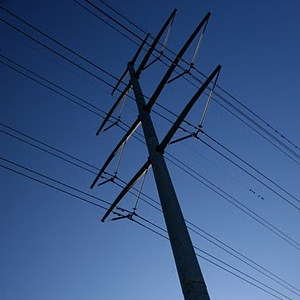In lieu of the BP disaster, I've been reading various blogs and posts from different sites and I stumbled upon this article from GOOD. Here's an excerpt from author Andrew Price:
In my earlier post on the tiny amount of renewable energy we're using today, I mentioned the potential of "distributed energy." The idea behind distributed energy, for those not familiar with the term, is that cities, towns, and even households could produce their own renewable energy locally rather than piping it in from a coal plant somewhere far away.
Read the full post: What Distributed Energy Looks Like

The idea of distributed energy is innovative and refreshing but like all renewable alternatives we need to make it efficient and sustainable. The previous post by Price questions the availability and essentially the future of renewable alternatives because of our heavy reliance on fossil fuels. Following the BP incident, our reliance on gas and oil need to be put into perspective and solutions to our energy demand need to be determined.
What are your thoughts on renewable alternatives and distributed energy for today and the future?
This post was submitted by Ahra Kwon who is studying chemical engineering at the University of Pittsburgh.
Image: Solar Power Grid - http://picasaweb.google.com/grussellms3
Related articles by Zemanta
- Natural Gas as Panacea: Dubious Path to a Green Future (cleantechies.com)
- Using Solar and Nuclear Energy Won't Cut Our Oil Bill (envirobuzz.net)
- Gas to displace coal on road to clean energy (nature.com)



Comments
I read the full post and it sounds like a great idea! Parts of the existing infrastructure could be used, which would be great
The only good thing that can come out of this Gulf Incident is that everyone recognizes the impact (and potential impacts) of our current energy sources. I fear that instead of taking steps toward safer and more sustainable energies the knee-jerk response is going to be to move drilling and processing farther out of our "backyard". Instead of decreasing risk, actually exposing ourselves to more risk as our fuel sources have to travel farther and may be produced in areas with lax environmental standards.
Those are good points. I fear that for the majority of Americans, the Gulf Disaster just isn't "real". For the people on the coast that are experiencing the fallout - it is real, but for those who live further inland who don't see the oil creeping up (except on cnn) and whose gas prices remain the same... I fear that apathy will keep us from making any real progress.
In 2003 time frame, when the world was working on hydrogen economy, this distributed energy sources/supplies were discussed. The GE building in NYC runs on local fuel cells. Like wise, folks were talking about having fuel cell based generator at indivdual home to take care of household energy requirement. This generator could be fed by natural gas using the lines we have. Similarly distributed hydrogen supplies for hydrogen based(fuel cell) cars were discussed. Individual gas (hydrogen) stations will generate its hydrogen to be fed to the filing cars. Even military was considering some distributed fuel cell based power sources - though their story was different. They want to use regular liquid fuel to feed to the hydrogen generator. Some advocated that the economics was favoring for distributed system and some advocated against that but none of these ideas came through. We should do a thorough economic analysis on these systems. Check out this: <a href="http://www.ganesha.co.uk/Articles/Biogas%20Technology%20in%20India.htm" target="_blank">http://www.ganesha.co.uk/Articles/Biogas%20Techno...</a>
That is a really interesting reference. What a great example of another low-tech solution that can have a potentially significant impact on the lives of a lot of people.